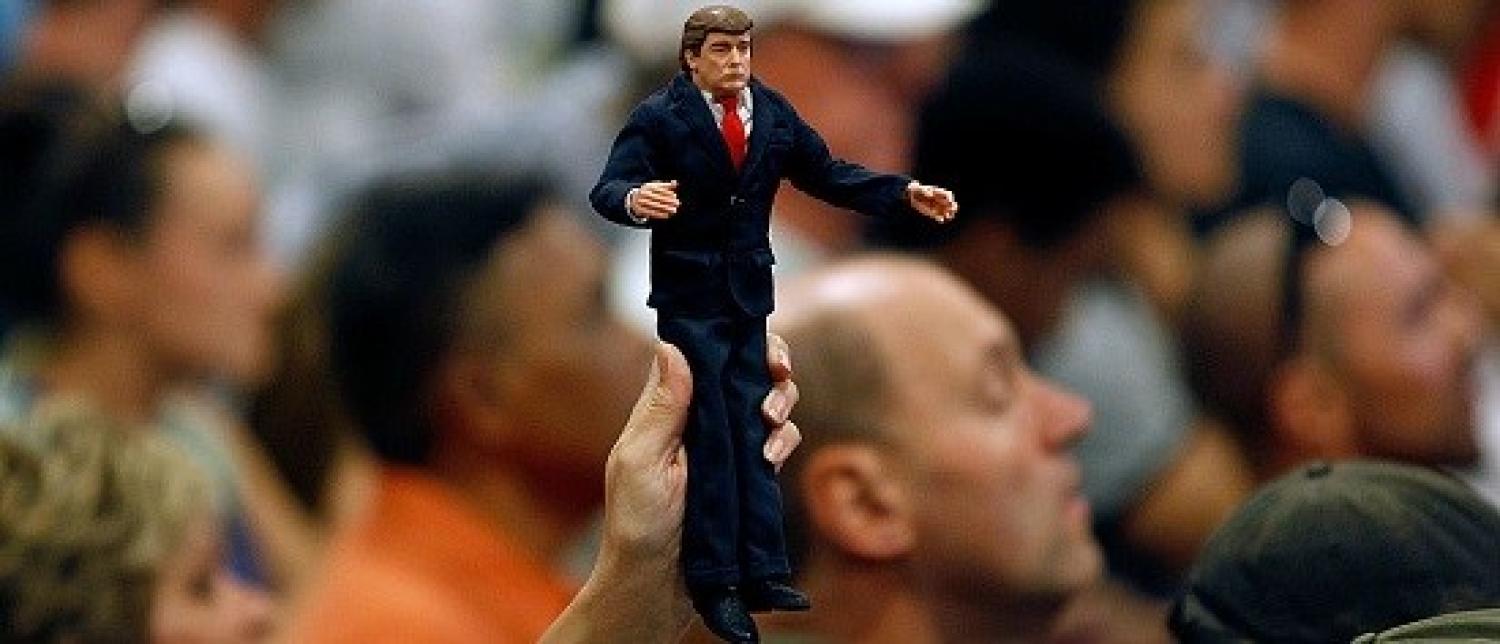Rolling Stone's Matt Taibi penned an essay a week ago about the Trump phenomenon, which builds to a stirring close:
Trump's shocking rise and spectacular fall have been a singular disaster for U.S. politics. Built up in the press as the American Hitler, he was unmasked in the end as a pathetic little prankster who ruined himself, his family and half of America's two-party political system for what was probably a half-assed ego trip all along, adventure tourism for the idiot rich.
That such a small man would have such an awesome impact on our nation's history is terrible, but it makes sense if you believe in the essential ridiculousness of the human experience. Trump picked exactly the wrong time to launch his mirror-gazing rampage to nowhere. He ran at a time when Americans on both sides of the aisle were experiencing a deep sense of betrayal by the political class, anger that was finally ready to express itself at the ballot box.
The only thing that could get in the way of real change – if not now, then surely very soon – was a rebellion so maladroit, ill-conceived and irresponsible that even the severest critics of the system would become zealots for the status quo.
In the absolute best-case scenario, the one in which he loses, this is what Trump's run accomplished. He ran as an outsider antidote to a corrupt two-party system, and instead will leave that system more entrenched than ever. If he goes on to lose, he will be our Bonaparte, the monster who will continue to terrify us even in exile, reinforcing the authority of kings.
If you thought lesser-evilism was bad before, wait until the answer to every question you might have about your political leaders becomes, "Would you rather have Trump in office?"
Trump can't win. Our national experiment can't end because one aging narcissist got bored of sex and food. Not even America deserves that. But that doesn't mean we come out ahead. We're more divided than ever, sicker than ever, dumber than ever. And there's no reason to think it won't be worse the next time.
If you want to read more about 'Trump's people', for weeks now I've been recommending to friends this interview by Rod Dreher in The American Conservative with JD Vance, author of Hillbilly Elegy: A Memoir of a Family and a Culture in Crisis:
RD: A friend who moved to West Virginia a couple of years ago tells me that she’s never seen poverty and hopelessness like what’s common there. And she says you can drive through the poorest parts of the state, and see nothing but TRUMP signs. Reading “Hillbilly Elegy” tells me why. Explain it to people who haven’t yet read your book.
J.D. VANCE: The simple answer is that these people–my people–are really struggling, and there hasn’t been a single political candidate who speaks to those struggles in a long time. Donald Trump at least tries.
What many don’t understand is how truly desperate these places are, and we’re not talking about small enclaves or a few towns–we’re talking about multiple states where a significant chunk of the white working class struggles to get by. Heroin addiction is rampant. In my medium-sized Ohio county last year, deaths from drug addiction outnumbered deaths from natural causes. The average kid will live in multiple homes over the course of her life, experience a constant cycle of growing close to a “stepdad” only to see him walk out on the family, know multiple drug users personally, maybe live in a foster home for a bit (or at least in the home of an unofficial foster like an aunt or grandparent), watch friends and family get arrested, and on and on. And on top of that is the economic struggle, from the factories shuttering their doors to the Main Streets with nothing but cash-for-gold stores and pawn shops.
Photo: Getty
